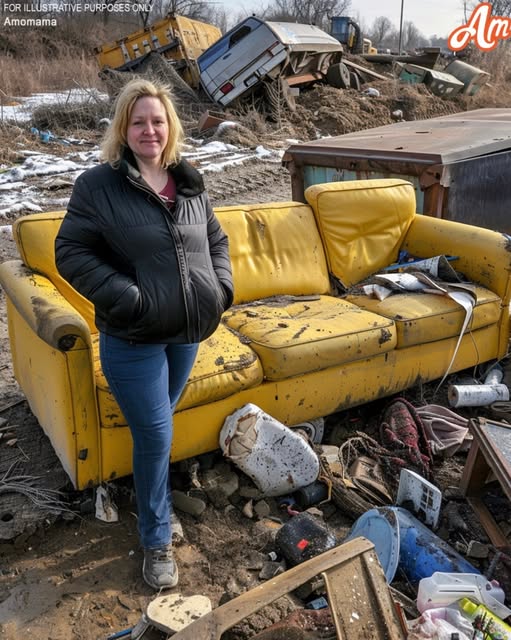Tom’s face turned pale when he saw the empty spot in our living room. “Please tell me you didn’t…” he started, but it was too late. I’d been asking him for months to get rid of that old, falling-apart couch. After weeks of waiting, I finally rented a truck, hauled it to the dump, and bought a new one.
When Tom saw the new couch, his face went white. “You threw away the plan?” he asked, panic rising in his voice.
“Plan? It was just an old couch!” I replied, confused.
Tom insisted we had to go to the dump to get it back. I followed, skeptical. When we arrived, he desperately searched through the trash until he found it—his old couch, with a crumpled map inside. It was a childhood map Tom and his brother Jason had created, marking hideouts and secret spots around their house.
Tom’s eyes welled up as he explained, “Jason died when he was young. This map… it’s all I have left of him.”
I held him as he cried, realizing the couch was more than just furniture—it was his connection to his lost brother.
Later, we framed the map and hung it in the living room. Over time, it became part of our family’s story. When our kids were old enough, Tom shared the map’s history with them. Years later, they drew their own version, calling it their “house map,” and Tom smiled, seeing the tradition continue.

